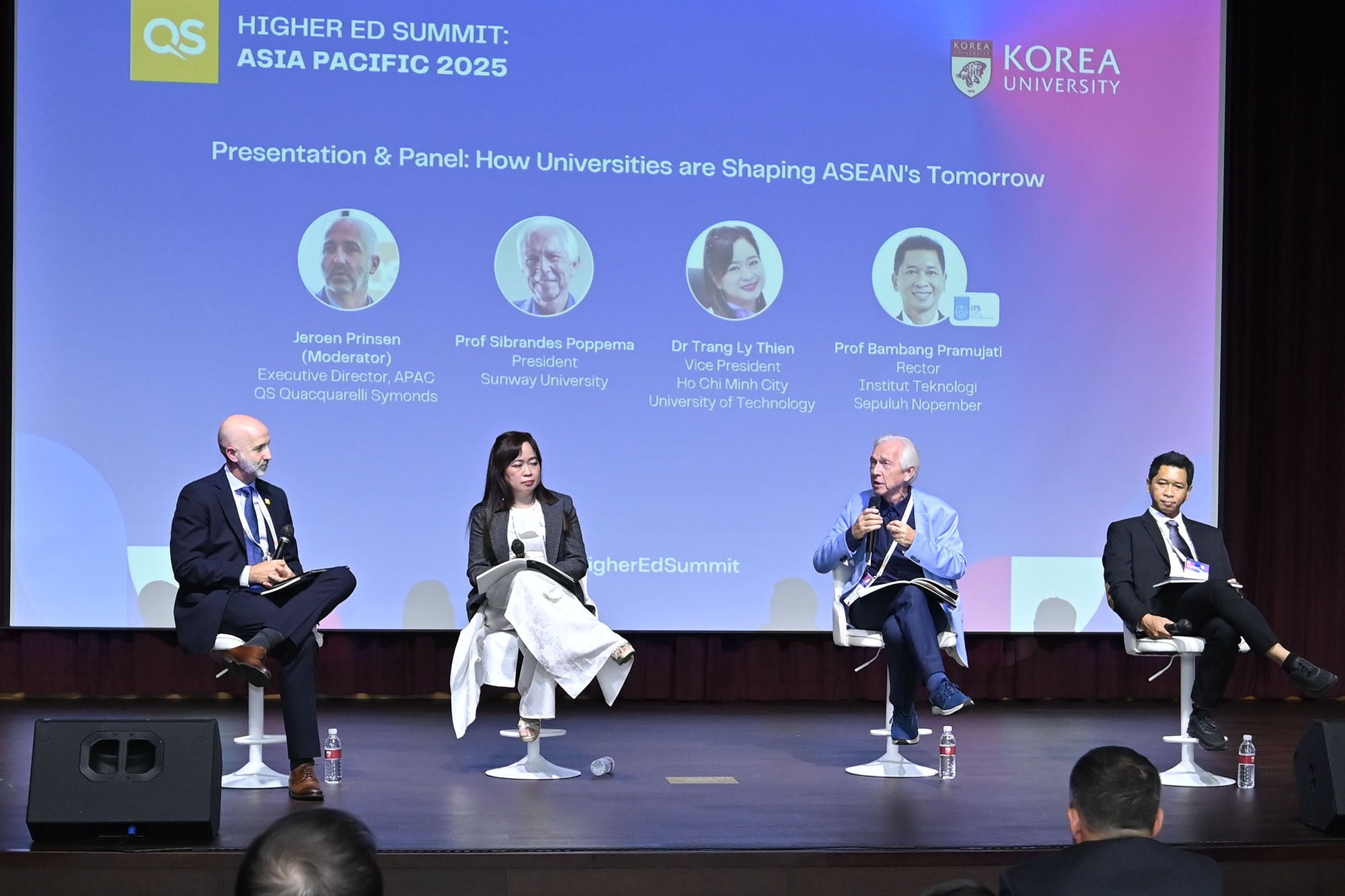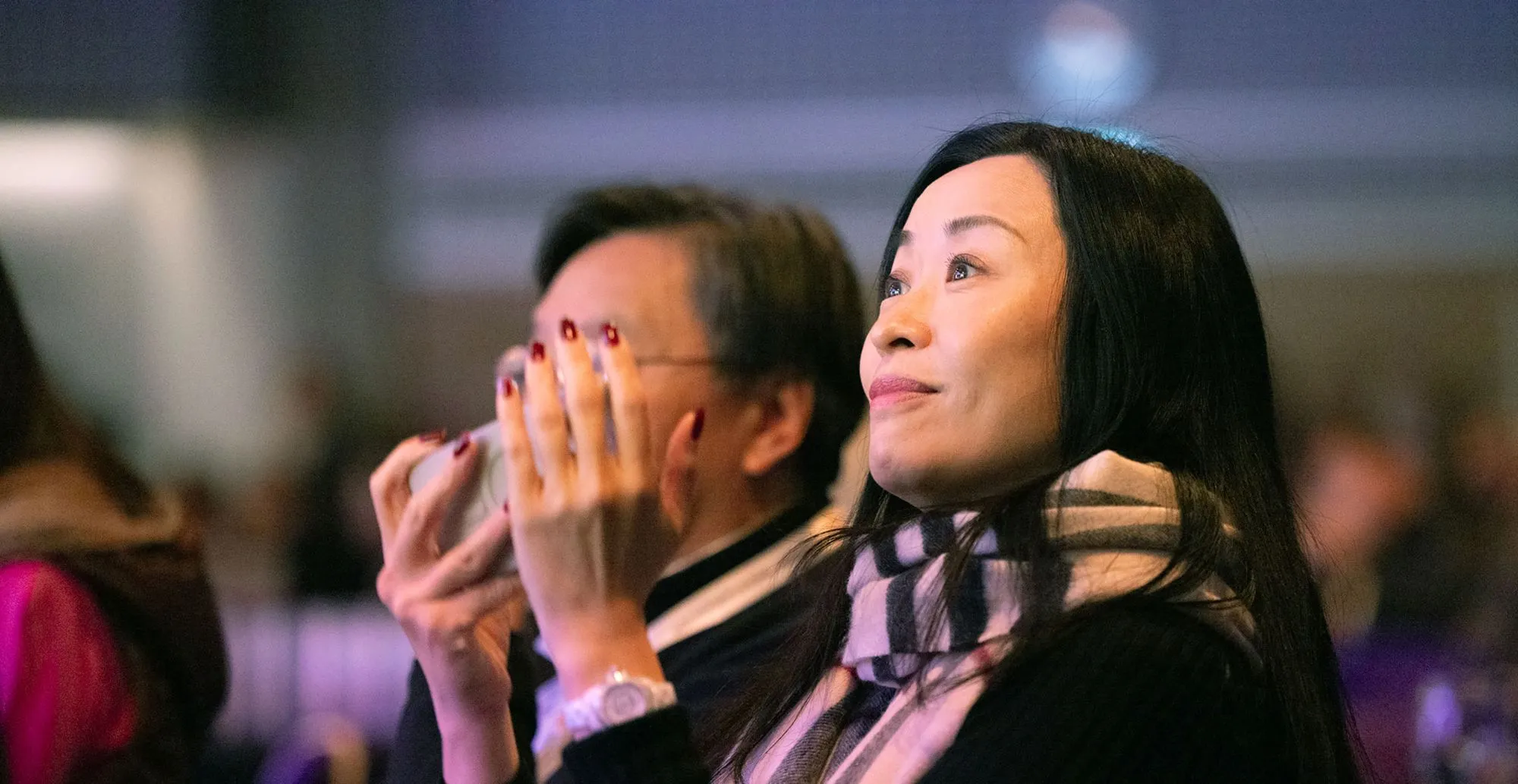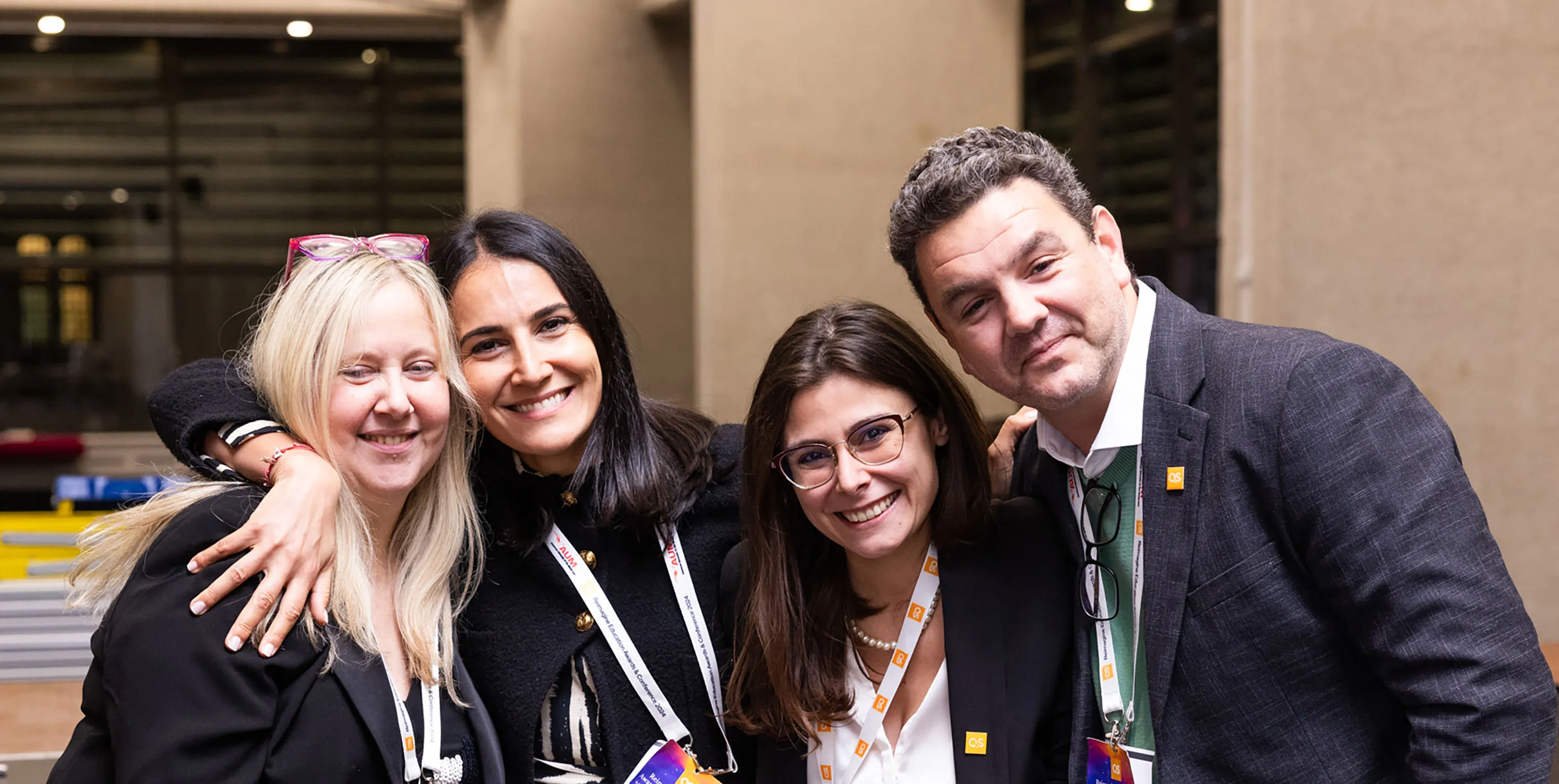At QS Higher Ed Summit: Asia Pacific 2025, we launched our brand new report titled: How universities are shaping ASEAN's tomorrow. Immediately following the launch, we brought together a panel of experts to share their perspectives on the report, and higher education in ASEAN countries. The panel underscored a unified vision across ASEAN: to drive economic and social transformation through education. Speakers emphasised that people are the region’s most valuable asset, and that investing in higher education is key to unlocking ASEAN’s full potential. Universities are transforming into engines of innovation and economic growth, integrating advanced research, technology, and inclusive learning models that align with global standards.
Panellists:
- Jeroen Prinsen, Executive Director, APAC at QS (Moderator)
- Prof. Bambang Pramujati, Rector at Institut Teknology Seopuluh Nopember
- Dr. Trang Ly Thein, Vice President at Ho Chi Ming City University of Technology
- Prof. Sibrandes Poppema, President at Sunway University
Why competitiveness now means connection
University competitiveness in ASEAN is shifting from reputation to real-world connection. Institutions that integrate with society and industry, through curricula that deliver digital, AI, and green capabilities, are pulling ahead. ASEAN’s universities are rising in global visibility while student mobility patterns diverge: Malaysia, Singapore, and Thailand attract most inbound learners, whereas Vietnam, Indonesia, and the Philippines send more students abroad. International students already contribute around US$4.3bn, with headroom to grow by 2030. Employers credit the region’s graduates for teamwork, social responsibility, and entrepreneurial instincts, but report skills gaps in critical thinking, emotional intelligence, and resilience. R&D investment remains uneven; Vietnam’s patenting and start-up momentum underscores that applied innovation matters.
What leading universities are doing
Institutions are redesigning for outcomes and industry relevance. Curricula embed AI and sustainability across programmes; internships are compulsory and complemented by frequent job fairs and employer-led masterclasses. Micro-credentials and digital delivery drive access and agility. Sunway University layers long-term employability through required courses on integrity and the SDGs, a scalable sustainable-entrepreneurship simulation, and place-based community service that measurably improves local health and opportunity. Indonesia’s Institut Teknologi Sepuluh Nopember advances co-creation in a techno park spanning maritime, automotive, creative, and ICT/robotics, moving research from mid-TRLs to incubation.
Policy levers that accelerate impact
Governments amplify relevance when they match industry funding, expand institutional autonomy, and reward international benchmarking. Indonesia’s co-investment schemes de-risk university–industry innovation; Vietnam’s push for more universities in top global tiers sharpens performance. Private universities in Malaysia receive little direct funding but benefit from ministry-backed entrepreneurship competitions and partnerships that connect students to high-tech employers.

Why collaboration is non-negotiable, and what’s next
Leaders agreed: international collaboration is essential for sharper practice, joint research, and scalable “internationalisation at home” so more students benefit than mobility alone can serve. The ASEAN of tomorrow is a borderless learning community - green, digital, and inclusive - with fluid study-to-work pathways across countries, deeper university–industry co-creation, and, critically, shared infrastructure such as a regional clean-energy grid to power growth. The sector’s north star: produce not only job-ready graduates, but job creators who advance sustainable prosperity for the region.









.jpeg)





.jpg)
.jpg)


.jpg)